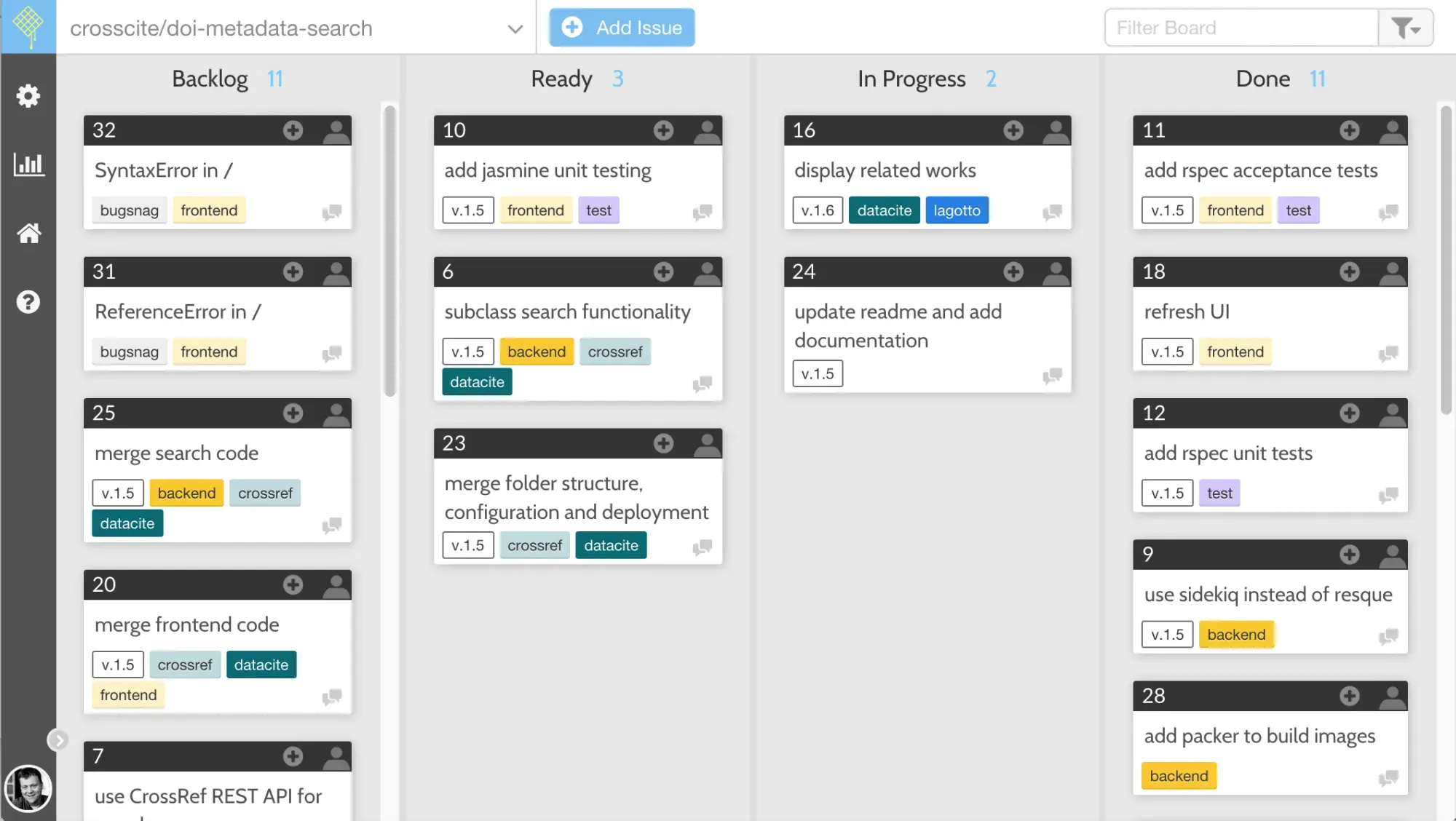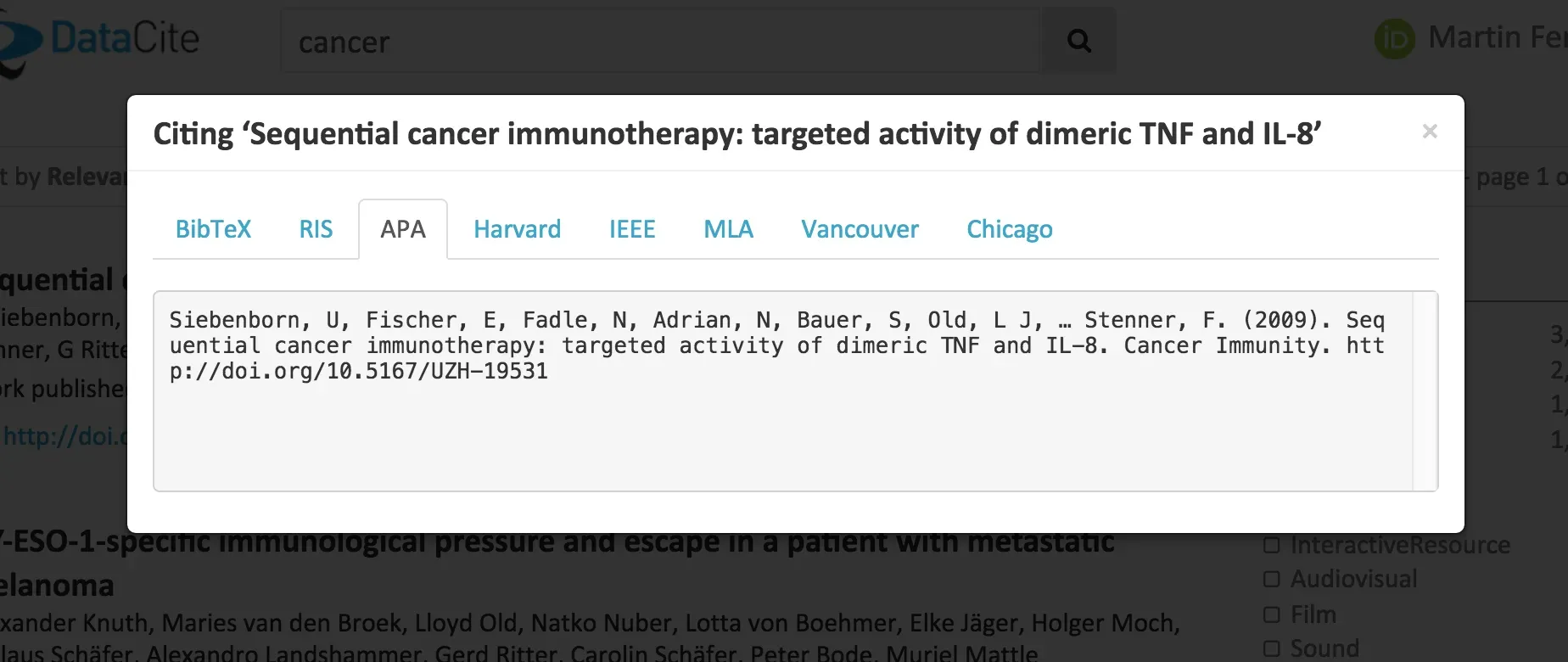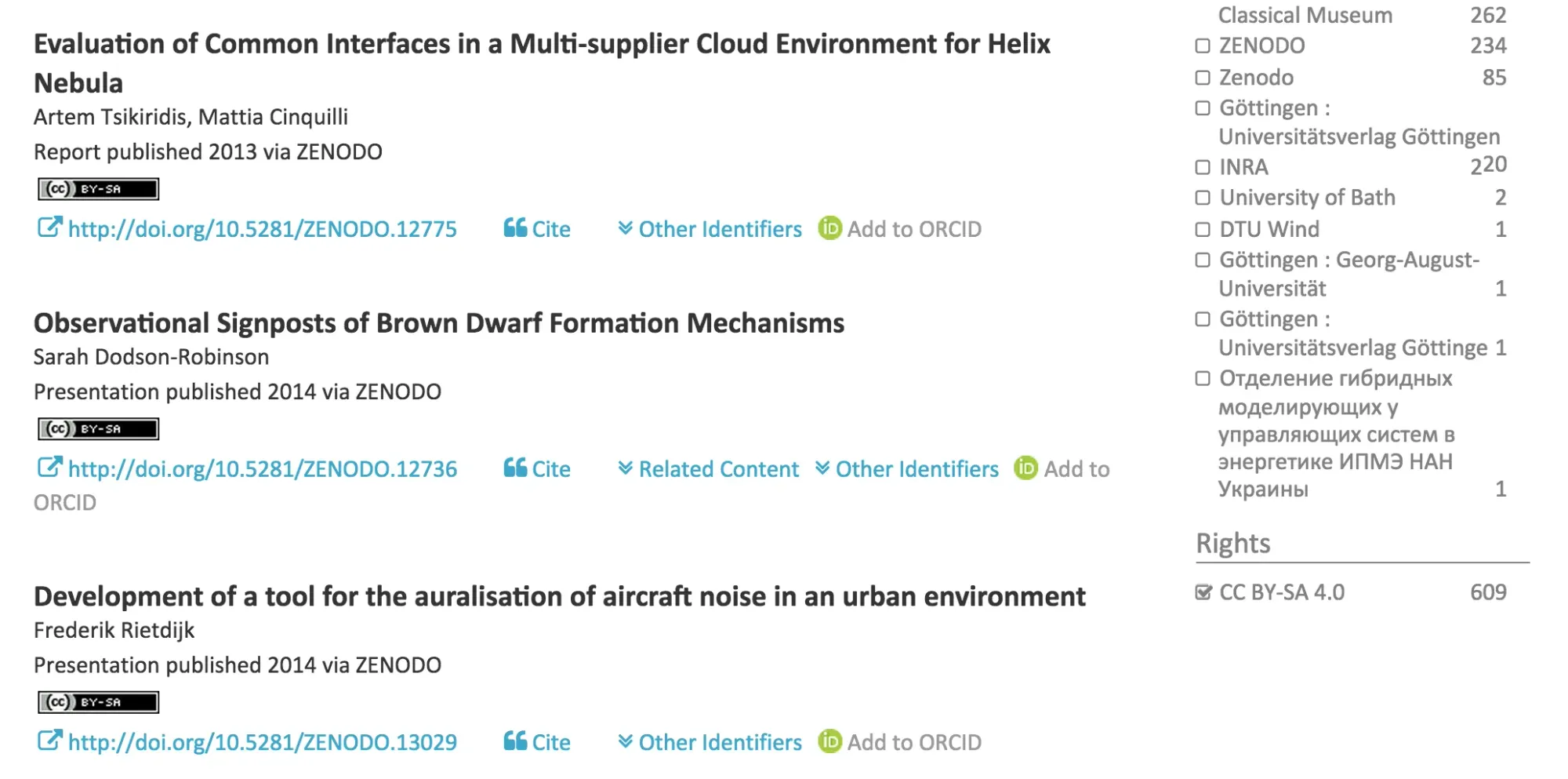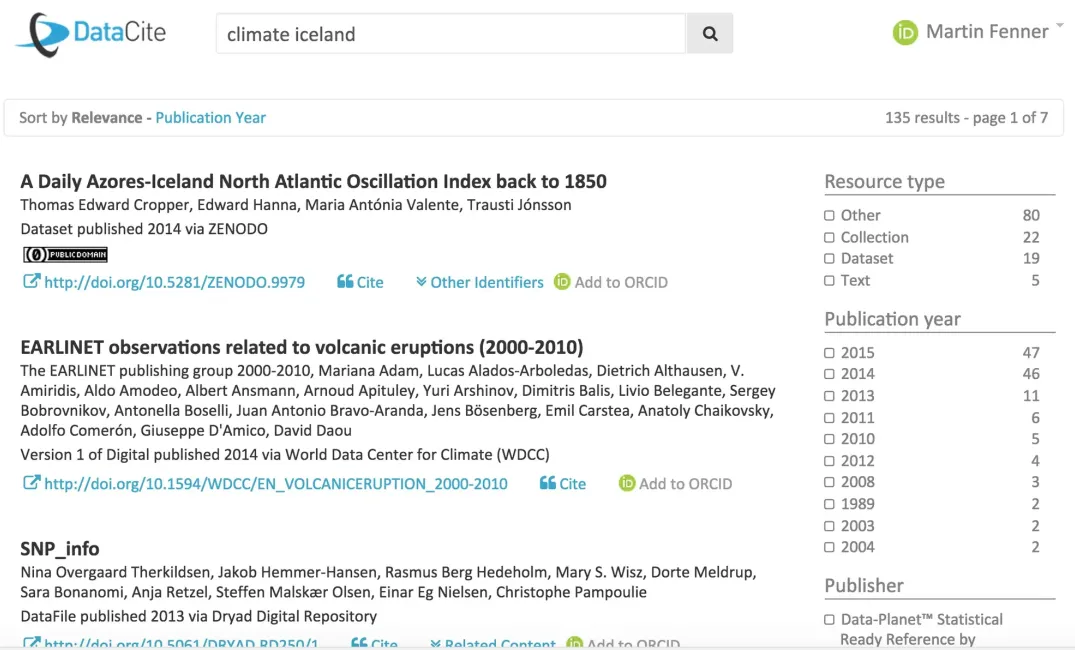Today I am pleased to announce the launch of a new service, DataCite Labs Search – the service is available immediately at https://search.datacite.org/. This is one of THOR’s first services and is based on work in the earlier EC-funded ODIN Project.
The ODIN project launched the DataCite/ORCID claiming tool in June 2013. The DataCite/ORCID claiming tool allows users to add works from the DataCite Metadata Store (MDS) to their ORCID profile. This was a successful pilot, enabling researchers to add their datasets to the ORCID service infrastructure.
THOR, the follow-up project to ODIN, started in June 2015. One of the goals of THOR is to build sustainable persistent identifier services based upon the piloting work done in ODIN.
The new DataCite Labs Search includes all functionality of the DataCite/ORCID claiming tool, but we have made some additional changes:
- re-deployed the service in the DataCite data center,
- merged the code repository back with the original CrossRef repo, and
- started work on making the service the default DataCite search.
Last week I spoke a bit about the differences between how to deploy a pilot project and a production service.
Crosscite
The DataCite/ORCID claim tool was started in 2013 as a fork of the open source code for the CrossRef Metadata Search. There are some subtle, but important differences between the CrossRef and DataCite Search API, and some other changes were introduced as well. Going forward we wanted to bring the two code bases together again, both for faster development and to make it easier for users: there shouldn't for example be much of a difference for a user between claiming a work to your ORCID profile from the CrossRef Metadata Search and the DataCite Labs Search. Since this month development happens in a common code repository in the Crosscite Github organization, and the project has been renamed to doi-metadata-search. You can follow along development via Github Issues or this waffle.io board:

Search
Allowing users to add works with DataCite DOIs to their ORCID profile should not be done in a separate service, but is ideally part of the standard search interface to DataCite that users use anyway. We therefore have to make DataCite Labs Search at least as good as the current DataCite Search. Both services use the DataCite Search API as their backend, but the user interface they provide is different. Some of the differences in Labs Search include:
- a single search box
- all information is shown in a list view, no linking to pages on data.datacite.org
- citation formatter
- filter results by Creative Commons license
- an updated user interface
The single input field for searching should be appropriate for most queries, but Labs Search also supports DisMax query syntax for more complex searches, and automatically detects DOI and ORCID names. Try some more complex queries, e.g. all presentations by a particular person.

Providing the metadata as formatted citation is an important feature that facilitates data citation. With BibTeX and RIS two standard import formats for reference managers are also supported. This feature is basically unchanged since 2013, and relies on the DOI content negotiation API provided by several DOI registration agencies. In addition, COinS is supported, allowing the import of multiple items at once, e.g. into a reference manager.

Allowing users to search for content based on what they are allowed to do with it is another important feature of Labs Search. We are using the rightsURI metadata field and the standard Creative Commons licenses. You can for example limit your search to content that uses the standard Wikipedia license CC-BY-SA (see above), or you might exclude content that doesn't allow commercial reuse and/or derivative works. The rightsURI field allows for multiple licenses, but unfortunately, less than 25% of DataCite DOI metadata include a Creative Commons license.
Labs
We are launching this updated tool as a DataCite Labs service instead of replacing the production service at search.datacite.org. There are two reasons: a) there are still some rough edges and possibly bugs, and b) we need to collect broader feedback from users before this can replace the current DataCite search. We plan to do this switch in the next 1-3 months, depending on user feedback. Please comment on this blog post, open a Github issue, tweet about it mentioning #datacite, or send an email to support@datacite.org.
Expect to see more new/updated DataCite services first appearing as DataCite Labs in the future.
Acknowledgments
This is a collaborative effort and I want to thank the DataCite and THOR teams, and in particular Karl Ward, Gudmundur Thorisson, Sebastian Peters, Rob Peters, Laura Rueda, Tom Demeranville, Geoff Bilder, Laure Haak, and Laura Paglione. This blog post was originally published on the DataCite Blog. This work was funded by the European Union’s Horizon 2020 research and innovation programme under grant agreement No. 654039.


